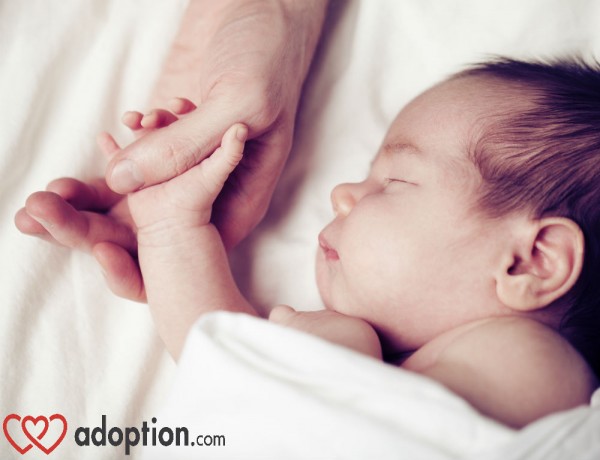Adopting an infant is an incredibly important decision. Are you wondering if you are ready?
If you are considering adopting an infant, here are a few questions you might ask yourself.
1. Why do I want to adopt?
Many couples pursue adoption due to infertility (my husband and I included), but adoption is not a cure for infertility or a replacement for biological children. Adoption is also not a way to “save” children. All forms of adoption are predicated by loss and have life-changing consequences (both wonderful and hard) for everyone involved. Take an honest inventory of your reasons for pursuing infant adoption before leaping. After all, adoption should be about finding families for children, not finding children to meet the family’s needs.
2. If you are adopting after infertility, have you appropriately dealt with that loss?
While adoption might come second chronologically, it is never second in importance and value. You absolutely can dearly love and bond with a child who is not biologically yours, but it is important not to pursue adoption as a replacement for a biological child. When you adopt, that child is your own. If you or your spouse needs additional time to process the growth of your family looking different than you anticipated, then take it. It is what’s best for you and your future child(ren).
3. Can I afford to adopt?
While actual costs can vary greatly, domestic infant adoption is expensive. Are you financially prepared? Being wealthy or debt-free is certainly not a requirement to adopt, but before embarking on such a process, it is beneficial to get your ducks in a row.
Begin to consider what extras you can cut out and if you can tighten your family’s budget in any way. Start or continue saving money. Perhaps research what, if any, grants might be available to apply for. Consider ways to fundraise at least a portion of the expense.
4. Am I educating myself on important topics such as ethics, transracial adoption, attachment, and openness?
Parenting a child by adoption will be different from parenting a child by birth. Are you educating yourself (or prepared to begin educating yourself) on relevant and important topics? Have you researched adoption ethics and what to look for in an agency? Today nearly 95% of infant adoptions have some degree of openness—have you learned about the benefits of open adoption, for adoptees especially, and considered your own posture toward this unique relationship? If you are open to adopting transracially, have you considered how you are able (or unable) to meet the needs of a child of a different race?
What other questions should we ask ourselves before pursuing infant adoption?
Considering adoption? Let us help you on your journey to creating your forever family. Visit Adoption.org or call 1-800-ADOPT-98.Preparing for Adoption: How to Get Ready
- Research Adoption Agencies: Look into different adoption agencies and find one that fits your needs and values such as the Gladney Center for Adoption
- Attend Adoption Workshops or Webinars: These can help you understand the adoption process better and connect with other adoptive families.
- Save Money: Start budgeting and saving for adoption expenses, such as agency fees, legal costs, and medical bills.
- Educate Yourself: Read books, watch videos, and talk to other adoptive parents to learn about adoption and parenting.
- Create a Support Network: Surround yourself with supportive friends, family, and professionals who can help you through the adoption journey.
Dispelling Common Misconceptions about Adoption
- Adoption Is Only for Infertile Couples: Adoption is a way to build a family for anyone who wants to parent a child, regardless of fertility.
- Adopted Children Won’t Love Their Parents as Much: Love isn’t limited by biology. Adopted children can form strong bonds with their adoptive parents.
- All Birth Parents Are Unfit: Birth parents choose adoption for various reasons, many are loving and capable but their reasons for choosing adoption are personal.
- Adopted Children Will Have Behavioral Issues: Every child is unique, and while adoption can come with challenges, proper support and love can help children thrive.
Considering Foster Care as a Path to Adoption
Foster care can be a pathway to adoption for some families. Here are some things to consider:
- Temporary vs. Permanent Care: Understand that foster care is often temporary, with the goal of reuniting children with their birth families if possible.
- Flexibility: Be prepared for uncertainty, as foster care placements can change suddenly based on court decisions and family circumstances.
- Support Services: Foster care agencies offer support services to foster families, including training, counseling, and financial assistance.
- Potential for Adoption: Some children in foster care become eligible for adoption if they cannot return to their birth families. If you’re open to adoption from foster care, discuss this possibility with your agency.

